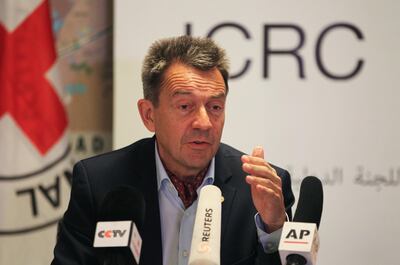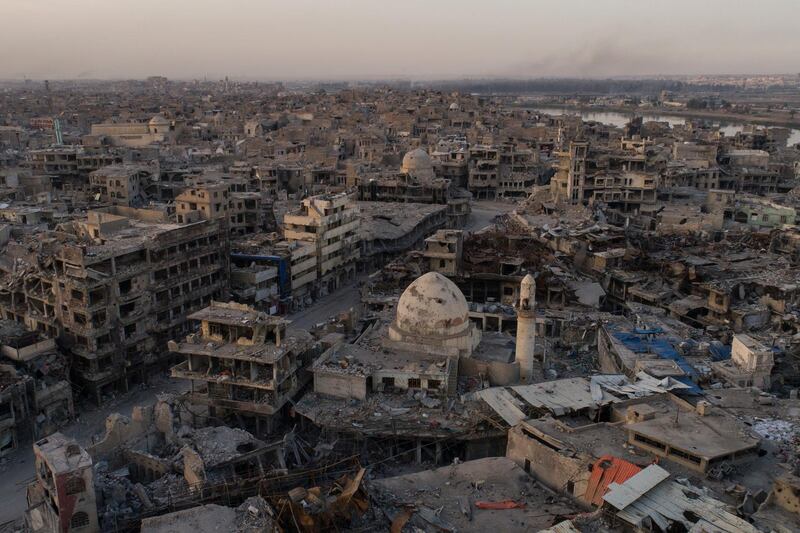A sister of a former Al Qaeda leader was sentenced to death by an Iraqi court on Thursday for terrorism offences, including providing support for ISIL operatives.
It comes as Iraqi courts try hundreds of detained women and their children who lived with the insurgents as they battled government forces.
The spokesman for Iraq’s Supreme Judicial Council, Abdul Sattar Bayrkdar said Abu Omar Al Baghdadi’s sister was found guilty for “offering logistic support and help to ISIL insurgents in carrying out criminal acts".
Al Qaeda in Iraq was the umbrella group from which ISIL emerged.
Little is known about the woman, who was not named by the court. Mr Bayrkdar said she was found guilty of "distributing money" among ISIL militants in Mosul, Iraq's second-largest city which was under the group's rule for more than three years from mid-2014.
Her husband was also sentenced to death for ISIL membership.
The country's counter-terrorism law stipulates that aiding or belonging to ISIL carries the penalty of life in prison or death.
Al Baghdadi led Al Qaeda’s Iraqi division since its formation in 2006 and was responsible for the group’s attacks in Baghdad and surrounding areas, including suicide bombings targeting Iraqi security services. He was killed along with Abu Ayyub Al Masri, another prominent Al Qaeda leader in Iraq, in a joint US-Iraqi operation in 2010.
Al Baghdadi's widow has also been arrested and sentenced to life in prison on terror-related charges.
In 2014, ISIL were at the height of their power in Iraq, having taken a third of its land. Iraqi Prime Minister Haider Al Abadi declared victory over the extremist group in December after a military campaign lasting more than three years, and Iraqi authorities began prosecuting foreign militants and their families soon afterwards.
The fate of current ISIL leader Abubakr Al Baghdadi is not known. He has been reported killed or severely injured in air strikes and fighting in both Iraq and Syria, but there has been no confirmation.
Since Iraq's victory, the central criminal court has issued number of sentences against ISIL women, ranging from long prison terms to death by hanging.
Last month, a court in Baghdad sentenced a Turkish woman to death, while 10 other foreign ISIL wives received life in prison for terrorism offences. A German woman has been sentenced to death for providing logistical support to the insurgents.
However, dozens of Russian women and children suspected of links to ISIL fighters were handed over to Moscow last month.

Thursday's sentences came as the International Committee of the Red Cross (ICRC) called for relatives to be given access to detained ISIL suspects.
The ICRC president Peter Maurer said countries investigating terror offences should "respect the rules of war" and cautioned against depriving families of suspected insurgents of “regular access to brothers, fathers, husbands".
Many were worried about “where they are detained and by who, what is the future of their bread-giver,” he said during a press conference in Baghdad. “The issue of foreign fighters is particularly complex."
I’m here first and foremost to listen to the Iraqi people about their humanitarian needs.
— Peter Maurer (@PMaurerICRC) March 6, 2018
The figures tell part of the story about the suffering in #Iraq:
- One in five people need aid
- 2.6 million are internally displaced.
Regional director Robert Mardini told The National that the Red Cross was urging "those holding any persons captured to be treated humanely, and in accordance to the law".
"Everyone has a right to be treated with humanity and dignity. This means: no one can be tortured, nor summarily executed. Everyone has a right to procedural safeguards, and to a fair trial. This includes the so-called foreign fighters," Mr Mardini said.






